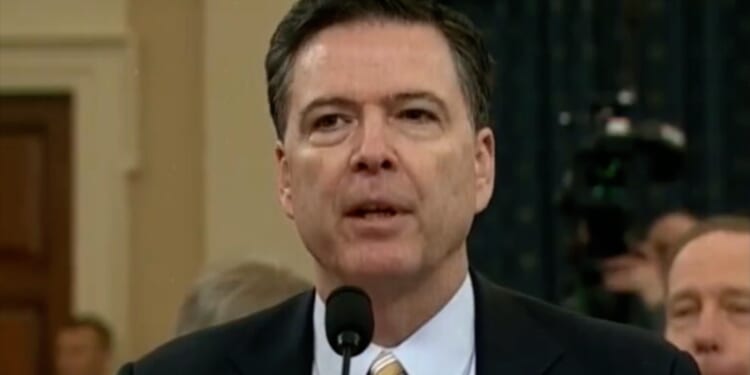James Lynch writes for National Review Online about a former FBI director’s strategy for fighting a recent indictment.
Indicted former FBI Director James Comey is seeking to have his criminal case dismissed on the grounds that he is the victim of selective prosecution because of President Trump’s disdain for him.
Comey’s defense team filed a motion to dismiss Tuesday, arguing that the Trump administration’s false statements case is an unconstitutional abuse of power by the Trump administration.
“Ample objective evidence—much of which comes directly from government officials’ own public statements and admissions—establishes that the government’s animus toward Mr. Comey led directly to this vindictive and selective prosecution,” Comey’s attorneys said in court papers.
“The proper remedy for the government’s constitutional violations is a dismissal with prejudice. That is the only way to cure the government’s flagrant misconduct and to deter similar future prosecutions of perceived political opponents.”
The court papers provide a detailed history of Comey’s career and the animus between him and President Trump. In 2017, Trump fired Comey for his role in kickstarting the FBI’s investigation into false claims of collusion between Trump and Russia. Comey became an anti-Trump commentator after his dismissal and a regular target of Trump’s barbs.
Comey’s attorneys argue that Trump’s demonstrable, years-long disdain for Comey is the motivating factor behind the government’s prosecution. They cite Trump’s public statements, including a recent Truth Social post urging Attorney General Pam Bondi to bring the case against Comey.
Furthermore, Comey’s lawyers refer to Trump’s decision to fire a career prosecutor and install Lindsey Halligan as the U.S. Attorney for eastern Virginia. Halligan is a former mid-level Trump White House staffer and personal attorney for Trump with no prosecutorial experience. Veteran prosecutor Erik Siebert struggled to build a case against Comey in eastern Virginia before Trump fired him and put Halligan in charge. …
… Vindictive prosecution claims are usually difficult to prove, although Comey’s case has more evidence for it than most.











